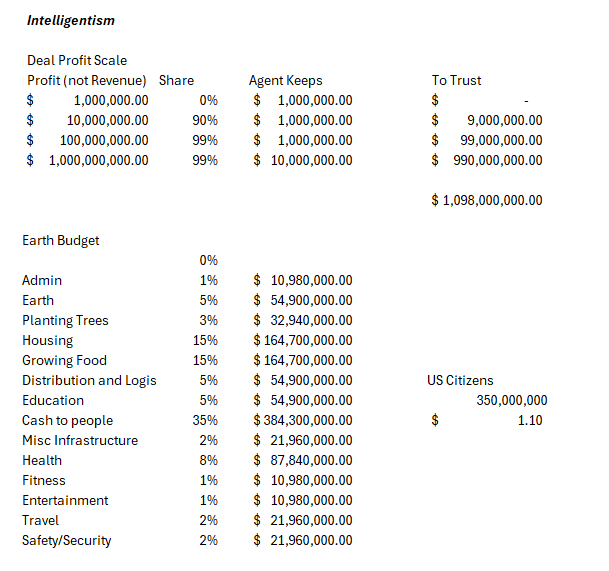From Healthline:
In the 11th century, a Japanese woman known as Murasaki Shikibu wrote “The Tale of Genji,” a 54-chapter story of courtly seduction believed to be the world’s first novel.
Over 1,000 years later, people the world over are still engrossed by novels — even in an era where stories appear on handheld screens and disappear 24 hours later.
What exactly do human beings get from reading books? Is it just a matter of pleasure, or are there benefits beyond enjoyment? The scientific answer is a resounding “yes.”
Reading books benefits both your physical and mental health, and those benefits can last a lifetime. They begin in early childhood and continue through the senior years. Here’s a brief explanation of how reading books can change your brain — and your body — for the better.
A growing body of research indicates that reading literally changes your mind.
Using MRI scans, researchers have confirmedTrusted Source that reading involves a complex network of circuits and signals in the brain. As your reading ability matures, those networks also get stronger and more sophisticated.
In one studyTrusted Source conducted in 2013, researchers used functional MRI scans to measure the effect of reading a novel on the brain. Study participants read the novel “Pompeii” over a period of 9 days. As tension built in the story, more and more areas of the brain lit up with activity.
Brain scans showed that throughout the reading period and for days afterward, brain connectivity increased, especially in the somatosensory cortex, the part of the brain that responds to physical sensations like movement and pain.
Why children and parents should read together
Doctors at the Cleveland Clinic recommend that parents read with their children beginning as early as infancy and continuing through elementary school years.
Reading with your children builds warm and happy associations with books, increasing the likelihood that kids will find reading enjoyable in the future.
Reading at home boosts school performance later on. It also increases vocabulary, raises self-esteem, builds good communication skills, and strengthens the prediction engine that is the human brain.
Was this helpful?
And speaking of sensing pain, researchTrusted Source has shown that people who read literary fiction — stories that explore the inner lives of characters — show a heightened ability to understand the feelings and beliefs of others.
Researchers call this ability the “theory of mind,” a set of skills essential for building, navigating, and maintaining social relationships.
While a single session of reading literary fiction isn’t likely to spark this feeling, researchTrusted Source shows that long-term fiction readers do tend to have a better-developed theory of mind.
Reading researchers as far back as the 1960s have discussed what’s known as “the Matthew effectTrusted Source,” a term that refers to biblical verse Matthew 13:12: “Whoever has will be given more, and they will have an abundance. Whoever does not have, even what they have will be taken from them.”
The Matthew effect sums up the idea that the rich get richer and the poor get poorer — a concept that applies as much to vocabulary as it does to money.
Researchers have foundTrusted Source that students who read books regularly, beginning at a young age, gradually develop large vocabularies. And vocabulary size can influence many areas of your life, from scores on standardized tests to college admissions and job opportunities.
A 2019 poll conducted by Cengage showed that 69 percent of employers are looking to hire people with “soft” skills, like the ability to communicate effectively. Reading books is the best way to increase your exposure to new words, learned in context.
Want to be sure your home is reader-friendly?
You may want to pick up a copy of Nancie Atwell’s “The Reading Zone.” It’s a quick, inspiring read penned by one of the most influential reading teachers in the world and the first recipient of the Varkey Foundation’s Global Teacher Prize.
You can look for it at your local bookstore or find it online.
The National Institute on AgingTrusted Source recommends reading books and magazines as a way of keeping your mind engaged as you grow older.
Although research hasn’t proven conclusively that reading books prevents diseases like Alzheimer’s, studiesTrusted Source show that seniors who read and solve math problems every day maintain and improve their cognitive functioning.
And the earlier you start, the better. A 2013 study conducted by Rush University Medical Center found that people who’ve engaged in mentally stimulating activities all their lives were less likely to develop the plaques, lesions, and tau-protein tangles found in the brains of people with dementia.
In 2009, a group of researchers measured the effects of yoga, humor, and reading on the stress levels of students in demanding health science programs in the United States.
The study found that 30 minutes of reading lowered blood pressure, heart rate, and feelings of psychological distress just as effectively as yoga and humor did.
The authors concluded, “Since time constraints are one of the most frequently cited reasons for high stress levels reported by health science students, 30 minutes of one of these techniques can be easily incorporated into their schedule without diverting a large amount of time from their studies.”
Doctors at the Mayo Clinic suggest reading as part of a regular sleep routine.
For best results, you may want to choose a print book rather than reading on a screen, since the light emitted by your device could keep you awake and lead to other unwanted health outcomes.
Doctors also recommend that you read somewhere other than your bedroom if you have trouble falling asleep.
British philosopher Sir Roger Scruton once wrote, “Consolation from imaginary things is not an imaginary consolation.” People with depression often feel isolated and estranged from everyone else. And that’s a feeling books can sometimes lessen.
Reading fiction can allow you to temporarily escape your own world and become swept up in the imagined experiences of the characters. And nonfiction self-help books can teach you strategies that may help you manage symptoms.
That’s why the United Kingdom’s National Health Service has begun Reading Well, a Books on Prescription program, where medical experts prescribe self-help books curated by medical experts specifically for certain conditions.
A long-term health and retirement studyTrusted Source followed a cohort of 3,635 adult participants for a period of 12 years, finding that those who read books survived around 2 years longer than those who either didn’t read or who read magazines and other forms of media.
The study also concluded that people who read more than 3 1/2 hours every week were 23 percent likely to live longer than those who didn’t read at all.
So, what should you be reading? The short answer is: Whatever you can get your hands on.
There was a time when remote regions had to rely on librarians traversing the mountains with books stuffed in saddlebags. But that’s hardly the case today. Just about everyone can access vast libraries contained in cellphones and tablets.
Not sure what to read with your kids?
Pick up a copy of Roger Sutton’s “A Family of Readers,” which is packed with age- and genre-specific recommendations.
You can look for it at your local bookstore or find it online.
Was this helpful?
If you’re pressed for time, devote a few minutes daily to a blog on a niche topic. If you’re looking for an escape, fantasy or historical fiction can transport you out of your own surroundings and into another world altogether.
If you’re on a career fast-track, read nonfiction advice offered by someone who’s already arrived. Consider it a mentorship you can pick up and put down when it suits your schedule.
One thing to note: Don’t read solely on a device. Flip through print books, too.
Studies have shown repeatedly that people who read print books score higher on comprehension tests and remember more of what they read than people who read the same material in a digital form.
That may be, in part, because people tend to read print more slowly than they read digital content.
There’s nothing wrong with watching an entire television series, start to finish, in a single weekend — just as there’s nothing wrong with eating a large, luscious dessert.
But binge-watching TV probably needs to be an occasional treat rather than your main source of intellectual stimulation. Research shows that prolonged TV viewing, especially for children, may change the brain in unhealthy ways.
Reading is very, very good for you. Research shows that regular reading:
- improves brain connectivity
- increases your vocabulary and comprehension
- empowers you to empathize with other people
- aids in sleep readiness
- reduces stress
- lowers blood pressure and heart rate
- fights depression symptoms
- prevents cognitive decline as you age
- contributes to a longer life
It’s especially important for children to read as much as possible because the effects of reading are cumulative. However, it’s never too late to begin taking advantage of the many physical and psychological benefits waiting for you in the pages of a good book.


















